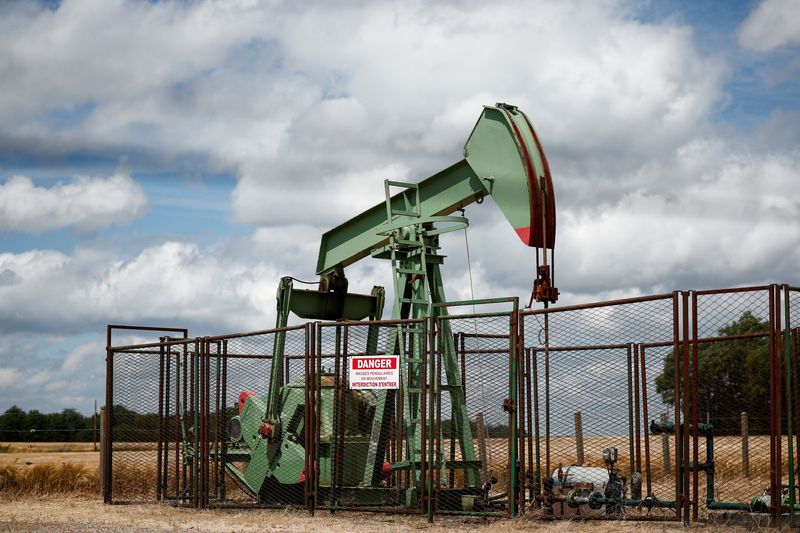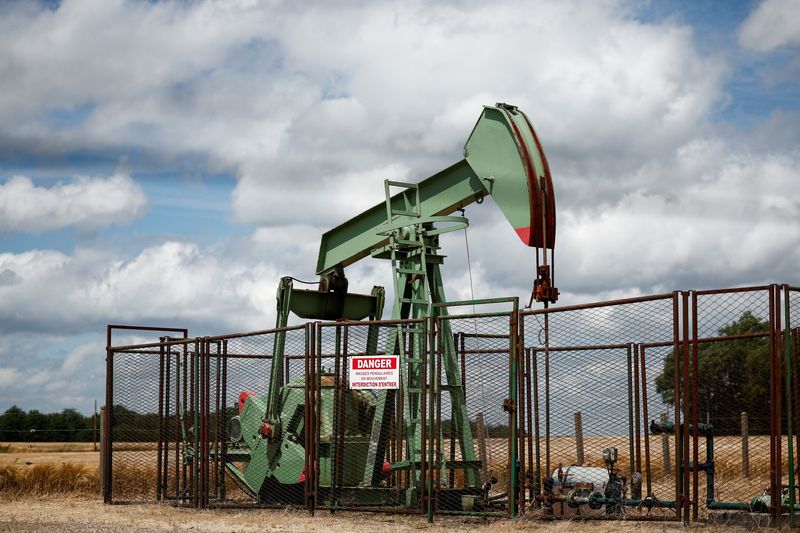
By Paul Carsten
LONDON (Reuters) -Oil prices edged higher on Wednesday but were still close to their lowest level in six weeks with few signs of the fuel consumption surge usually seen at this stage of the northern hemisphere summer.
Still, prices snapped three straight sessions of decline on falling U.S. crude inventories and growing supply risks from wildfires.
Brent crude futures for September rose 71 cents, or 0.9%, to $81.72 a barrel by 1117 GMT. U.S. West Texas Intermediate crude for September increased 75 cents, or 1%, to $77.71 per barrel.
The likely reason for the wider sell-off has been the “diminishing hopes of demand resurrection,” with “an admission from refiners that the summer leap in consumption is simply not taking place”, said Tamas Varga of oil broker PVM.
U.S. oil refiners are expected to report sharply lower second quarter earnings versus a year ago after a listless summer driving season weakened refining margins, energy analysts said.
Oil prices fell to a six-week low on Tuesday, with Brent closing at its lowest level since June 9 on ceasefire talks between Israel and Hamas in a plan outlined by U.S. President Joe Biden in May and mediated by Egypt and Qatar.
Prices also suffered due to continued concern that the economic slowdown in China, the world’s biggest crude importer, would weaken global oil demand.
Meanwhile, crude oil deliveries to India, the world’s third-biggest oil importer and consumer, slipped in June to their lowest since February, government data showed.
WTI lost 7% over the previous three sessions, while Brent was down nearly 5%.
Buoying prices, U.S. crude oil, gasoline and distillate inventories fell for the fourth straight week in the previous week, according to market sources citing the American Petroleum Institute (API), reflecting steady demand in the world’s largest consumer of oil.
That would be the first time crude stocks in the United States fell for four weeks in a row since September 2023.
Official government oil inventory data is due for release later on Wednesday.

Wildfires in Canada forced some producers to curtail production and threatened a large amount of supply, ING analysts said.
“Market is nearing oversold territory and we still believe that the fundamentals support prices moving higher from current levels over the remainder of the third quarter on the back of a deficit environment,” ING analysts said in a note.
This post is originally published on INVESTING.



